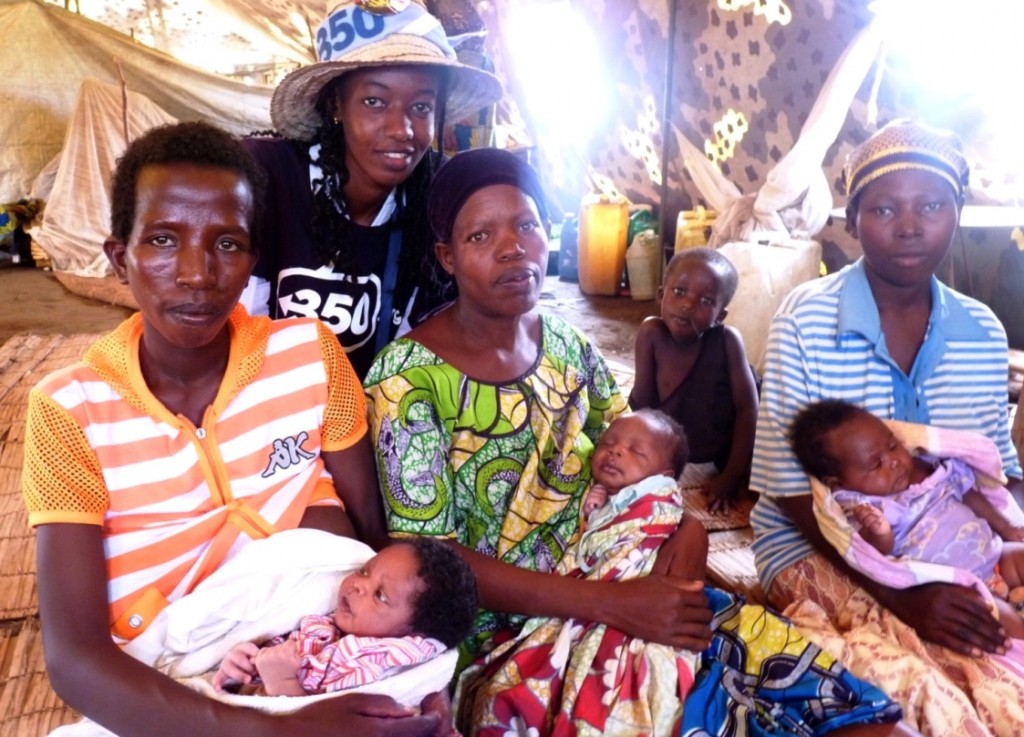This post was written by Genny Ndayisenga, member of 350 Burundi team after the visit of Gatumba village on May 5, 2012
On 24th and 25th February2012, heavy rainfalls of an extreme intensity poured down onto Gatumba village. Houses were flooded and an estimated 500 destroyed. People were left homeless. They were about 2,000 to flee their houses. Some have found refuge in their neighborhood and others have been gathered in the military domain where they are living up to now in 2 tents provided by the army.
« I couldn’t save anything from the house. Food, clothes, kitchen utensils….all have been destroyed! » said Ruth Buregeya, a victim of floods I met in the displaced camp.
Ruth is 30, married and mother of 7 children. When the floods broke, she was pregnant. She fled her house and is now sheltered in the tents provided by the army where she gave birth to a baby boy a few weeks later.
As all the refugees in the camp, Ruth relies on food handouts to survive and is claiming for improved living conditions.
«We appreciate people give us food, but we would also like to be provided in clean water. We have to pay 100 Burundi francs (0.070 $) to get a 10 litres jerrican of water. » Ruth said
Two months after the flood, the place where used to live Ruth is still wet and muddy. There is no hope for her to get back home soon. She said she will wait until the water gets dry to return home.
«I always pray the sun keep shining so that the water gets dry and we rejoin our homes. Maybe God will listen to my prayers and prevent us from this curse again».
“A curse”? Ruth is not the only one to give such an explanation to the floods and other adverse effects of climate change. Sometimes people fail to explain side effects of climate change, they do not make adequate connections and are kept in deep ignorance. What happened in Gatumba was not a matter of curse. Just one among other million climate impacts facts. Gatumba village was seriously hit by the floods because houses were built in a muddy area which is not suitable for human settlement.
Those are the connections and clarifications the 350 Burundi team wanted to share on Climate Impacts Day last Saturday. We had time to explain that not all extreme weather events are due to climate change but as the world get warms, such weather hazards are likely to happen with higher intensity and regular frequency. That’s the reason to worry for vulnerable communities in Burundi and across Africa with minimal adaptation capacity. 350 Burundi team will continue to sensitize people on climate change and weather connections at the same time establishing dialogue with the concerned stakeholders to find out sustainable solutions to the situation and preventive measures to similar ones that could occur any time.

